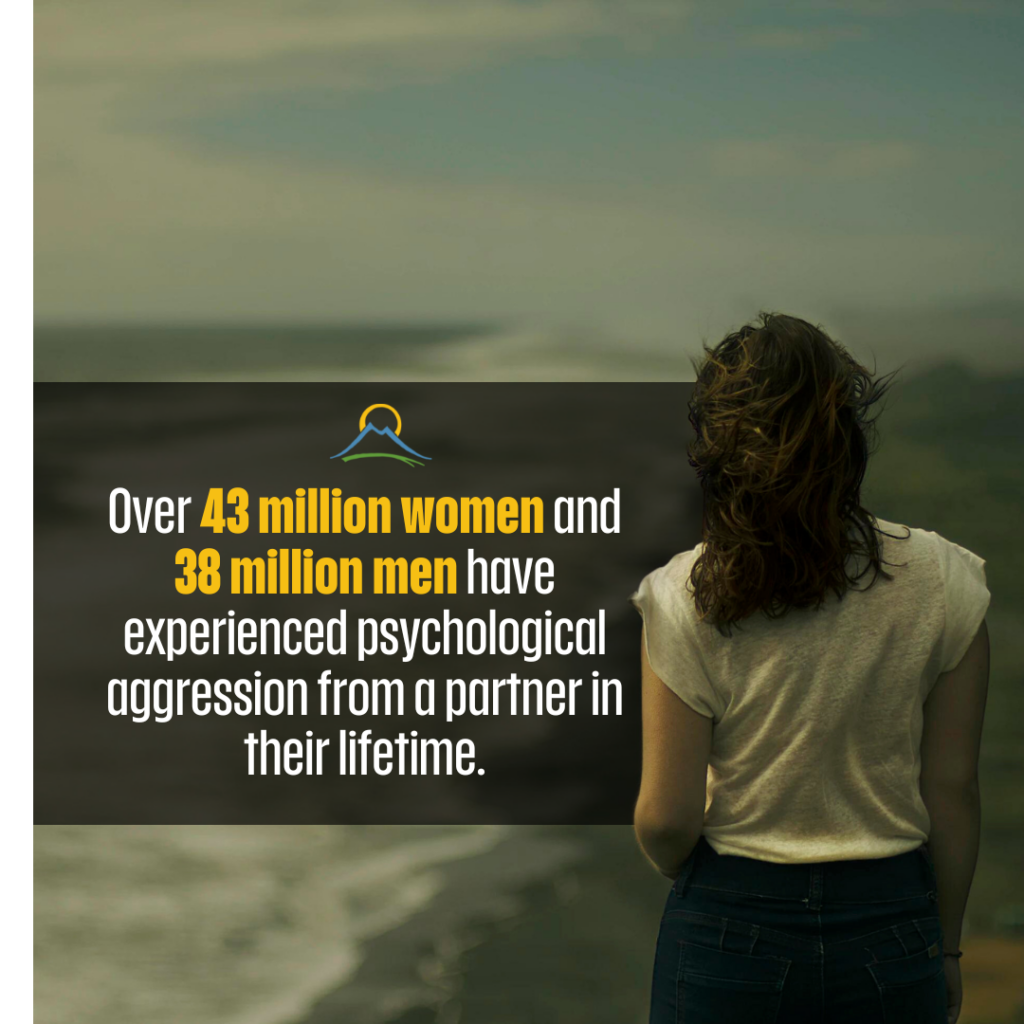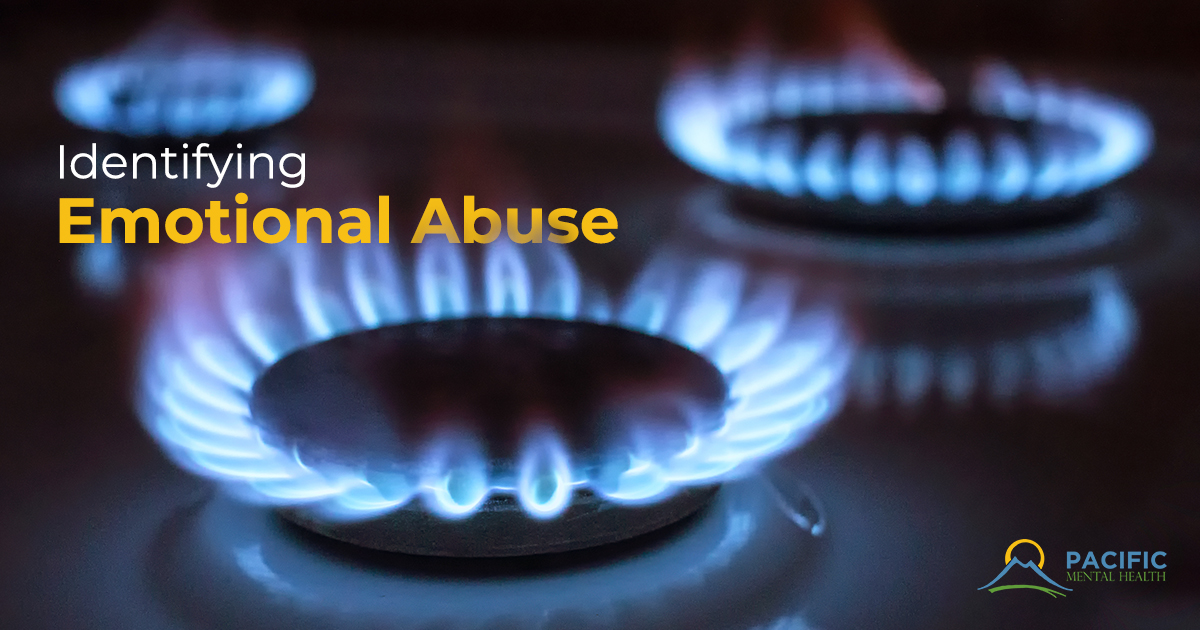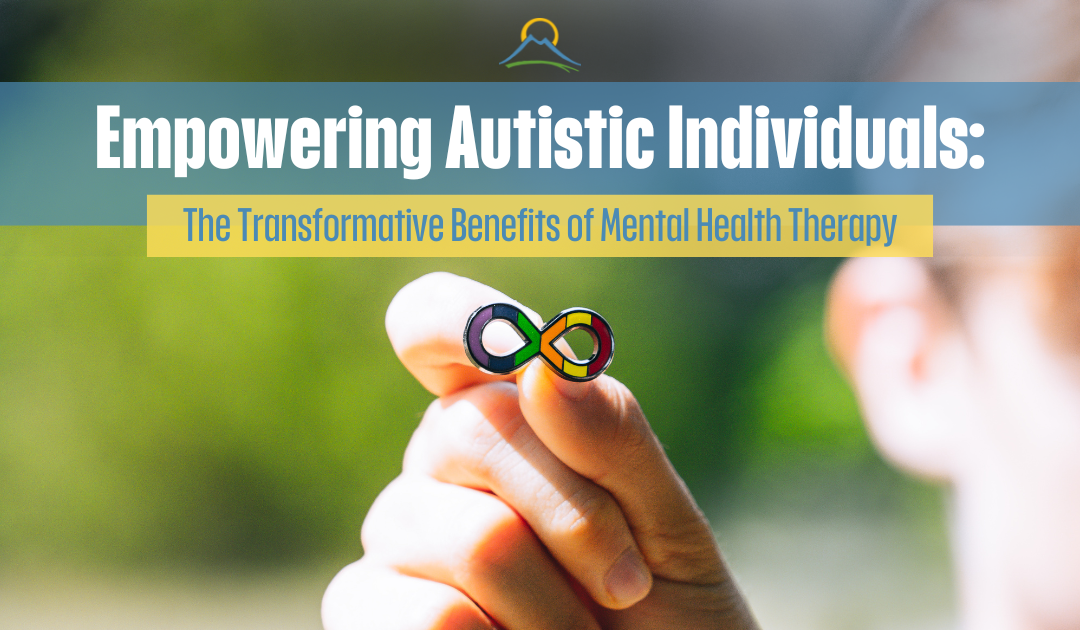Emotional abuse can occur in any relationship, including but not limited to family, friendships, professional and romantic relationships. Emotional abuse is difficult to define and even harder to notice. Emotional abuse involves insults, manipulation, yelling, control isolation, and various other behaviors. So, what behaviors constitute emotional abuse, what are the warning signs, and if you think you might be in one, what can you do?
Types of Emotional Abuse
Emotional abuse can be hard to recognize but extremely harmful. Some behaviors that could constitute emotional abuse include but are not limited to the following.
- Insults
- Ridiculing and belittling
- Yelling or swearing at someone
- Calling them names
- Forcing someone to do humiliating things
- Purposely saying things to hurt a person
- Ordering a person to do things
- Indifference toward partner
- Financial abuse or controlling a partner’s access to money
- Forcing a partner to do all the housework or childcare
- Restricting a partner’s use of a phone or car
- Controlling when and how a partner leaves the house
- Controlling a partner’s
- Calling a partner crazy
- Blaming a partner for one’s problems and behaviors
- Preventing a partner from attending work or school
- Threatening
- Isolating a partner from friends or families
- Intimidation
- Gaslighting
Please note these are not the only types of emotionally abusive behaviors. Emotional abuse can take many forms.

Warning Signs
Emotional abuse can seem to come out of nowhere (Office on Women’s Health, 2021). Love bombing is a phenomenon in which, at the beginning of a romantic relationship a partner when a partner exhibits over-the-top affection and attention. It is a form of manipulation commonly used in relationships to create a dependence on the love-bombing partner. It can look like showering a partner with gifts, praise, and adoration early in the relationship. Love bombing creates a false sense of security that causes a partner to get invested in a relationship making it harder to leave when the abuse begins. Love bombing does not always occur in emotionally abusive relationships, but it is a common precursor and warning sign (PsychologyToday, 2022).
Emotional abuse can lead to a victim having a skewed sense of reality, doubting their thoughts and feelings, destroying their self-esteem, and making them feel unworthy and hopeless while making them feel as if they need their partner and cannot live without them. This warped perception of reality makes it difficult to determine whether a relationship is abusive (Miles, 2016).
What You Can Do

You are not alone if these behaviors sound like something you have or are currently experiencing. Over 43 million women and 38 million men have experienced psychological aggression from a partner in their lifetime. Emotional abuse does not discriminate based on culture, religion, sexuality, gender identity, ethnicity, or socioeconomic status. Identity does not exclude anyone from emotional abuse, but women aged 18-24 are most commonly the victims (Center for Disease Control, 2021).
There is hope if you find yourself in an emotionally abusive relationship. Some things you can do include but are not limited to, talking to a trusted friend or family member, so they know what you are going through. Emotional abuse thrives off isolation, so the less isolated you are, the easier the way out is. Talk to a counselor about what you are experiencing; they can help provide the resources you need to get out of the relationship. Additionally, you can reach out to a domestic violence hotline to aid you in seeking the help you need. It is important to note that emotional abuse can be a precursor to physical abuse (Karakurt & Silver, 2013). Taking precautions and keeping yourself safe if you are leaving an abusive relationship is essential.
Conclusion
If you feel like you are in an emotionally abusive relationship, it is vital to remember that you are not alone. There are resources and people who can help you find a way out and aid you in the healing process. If you are struggling with emotional abuse, the national domestic violence hotline is 800-799-7233. If you or someone you know thinks they may be struggling with emotional abuse, there are therapists here to support you when you feel ready.
Sources
- Center for Disease Control. (2021, September 11). Fast facts: Preventing intimate partner violence |violence prevention|injury center|CDC. Cdc.Gov. https://www.cdc.gov/violenceprevention/intimatepartnerviolence/fastfact.html
- Karakurt, G., & Silver, K. E. (2013). Emotional Abuse in Intimate Relationships: The Role of Gender and Age. Violence and Victims, 28(5), 804–821. https://doi.org/10.1891/0886-6708.vv-d-12-00041
- Miles, J. (2016, June 7). Identifying Psychological and Emotional Abuse. Welldoing. https://welldoing.org/article/identifying-psychological-emotional-abuse
- Mouradian, V. E. (2000). Abuse in intimate relationships: Defining the multiple dimensions and terms. National Violence Against Women Prevention Research Center. https://mainweb-v.musc.edu/vawprevention/research/defining.shtml
- Office on Women’s Health. (2021, February 15). Emotional and verbal abuse. https://www.womenshealth.gov/relationships-and-safety/other-types/emotional-and-verbal-abuse
- PsychologyToday. (2022). Love bombing. https://www.psychologytoday.com/us/basics/love-bombing








0 Comments